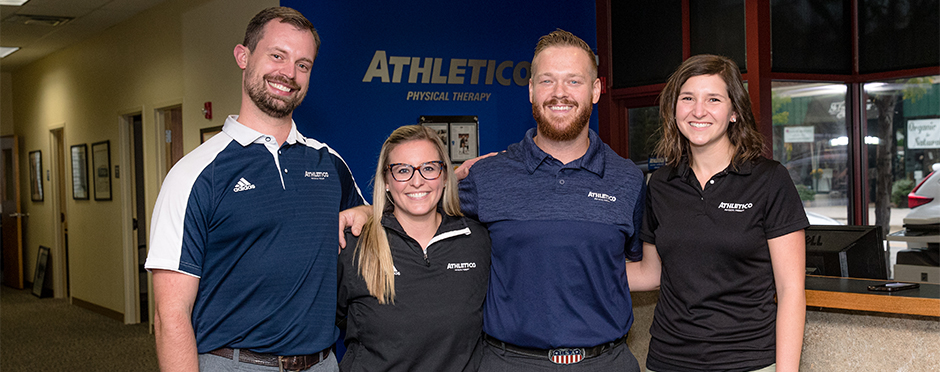
8 Lessons I Would Tell My Past Self About Being A Physical Therapist
Leave a CommentI still remember the day I sat with my college advisor as he laid out the curriculum plan that would allow me to apply for physical therapy school. It was one of the last pieces of the “figuring out what you want to do with your life” puzzle, and I left his office energized and focused on achieving my goal of becoming a physical therapist (PT).
Nearly 20 years later, as I reflect on my career and that initial dream, my time as a PT closely parallels that initial vision. Yet, as with most dreams, I can’t say my idea of what being a PT would be like was completely realistic.
If I could grab that young man from his advisor’s office and add a few additional pieces to that puzzle, I would offer him these eight lessons about being a PT. While directed towards PT, I believe the essence found in these lessons can be widely applied to all careers and life situations.
1. Caring Looks Like Sacrifice
Most get into healthcare because we want to care for people, and we have a desire to help. In reality, caring for people often looks a lot like sacrificing for them. To provide the best care for patients, you will need to make their needs a top priority. That might look like coming early or staying late to accommodate them, listening to them when you’re tired, or addressing their concerns before yours. Caring is an action, but more importantly, a mindset.
2. You Don’t Fix People
You won’t possess magic powers that allow you to fix people miraculously. The recovery process is a two-way street; your best outcomes will result when your patients are active participants in the process. Like a guide on an expedition, you’ll lead people to the summit, but they will need to do much of the work. Be a facilitator, not a fixer.
3. You Won’t Have All The Answers
Patients see you because they have a problem, and you won’t have all the answers. That’s OK, and, the sooner you come to terms with it, the faster you will be able to help these patients. “I am not sure,”, “I haven’t seen that,” “my colleague might be better able to answer that” are all phrases you need to be comfortable saying. Patients don’t expect you to know everything, but they value being led to the answer. Knowing the answer and finding the answer produce similar results.
4. You’re A Vital Healthcare Provider
Physical therapy does not exist in a vacuum, and you will closely work with clinical providers in all areas of healthcare. Collaboratively, you’ll contribute your assessments and ideas to a healthcare team working towards a common goal; the patient. You’ll function as an efficient and cost-effective access point into the healthcare system for many musculoskeletal disorders, making you a valuable link in the healthcare chain. The value of a role isn’t found in its prominence.
5. You Will Have To Add And Subtract
When you grow as a therapist, you will learn new ideas, develop new techniques, and expand into new areas of practice, but development isn’t always about adding skills. Over time evidence changes, and you will need to let go of old ideas and concepts that may no longer be helpful. This doesn’t invalidate previous work but is a part of a healthy debriding process that allows for continued growth. Addition sometimes occurs by subtraction.
6. Treatment Includes Your Words
You will undoubtedly spend a lot of hands-on time with patients, but that won’t be the only type of treatment you provide. What you say to patients can have a drastic effect on their outcomes. Your words will encourage, support, guide, and calm, or they will worry, anger, deflate, or limit your patients. Sometimes your words can be as effective as your hands.
7. There Is No One-Size-Fits-All Physical Therapy
In a sense, PT is like art with many different forms and expressions. You will develop your style and preferences but be careful not to hold onto them so tightly you miss the value in other forms. This diversity of practice is good and allows our valued services to address various needs across multiple settings and situations. A different approach isn’t a wrong approach.
8. Know Your Anatomy
In school, this is a phrase you always hear and it’s true. Not only will you use your anatomy knowledge every day, but it’s the foundation on which everything else builds. All high performers are masters of the basics, in therapy, the basics are anatomy. You will never outgrow the basics.
If you would like to learn more about the profession of physical therapy, Athletico offers several resources:
- Student Job Shadows: Opportunity for students to observe physical therapists in their daily practice to assess if this is the right field for them.
- Student Development Day: Opportunity for current physical therapy students to learn more about how Athletico’s invests in physical therapy through clinical excellence, specialty programs and the patient experience.
- Student Webinar Series: Opportunity for students and new grads to join a virtual webinar to learn from featured guests and industry experts on various topics within physical therapy.
- Clinical Rotations: Opportunity for physical therapy students to perform clinical rotation at an Athletico clinic with a skilled clinical instructor to prepare them to meet competency requirements as entry-level clinicians.
The Athletico blog is an educational resource written by Athletico employees. Athletico bloggers are licensed professionals who abide by the code of ethics outlined by their respective professional associations. The content published in blog posts represents the opinion of the individual author based on their expertise and experience. The content provided in this blog is for informational purposes only, does not constitute medical advice and should not be relied on for making personal health decisions.
